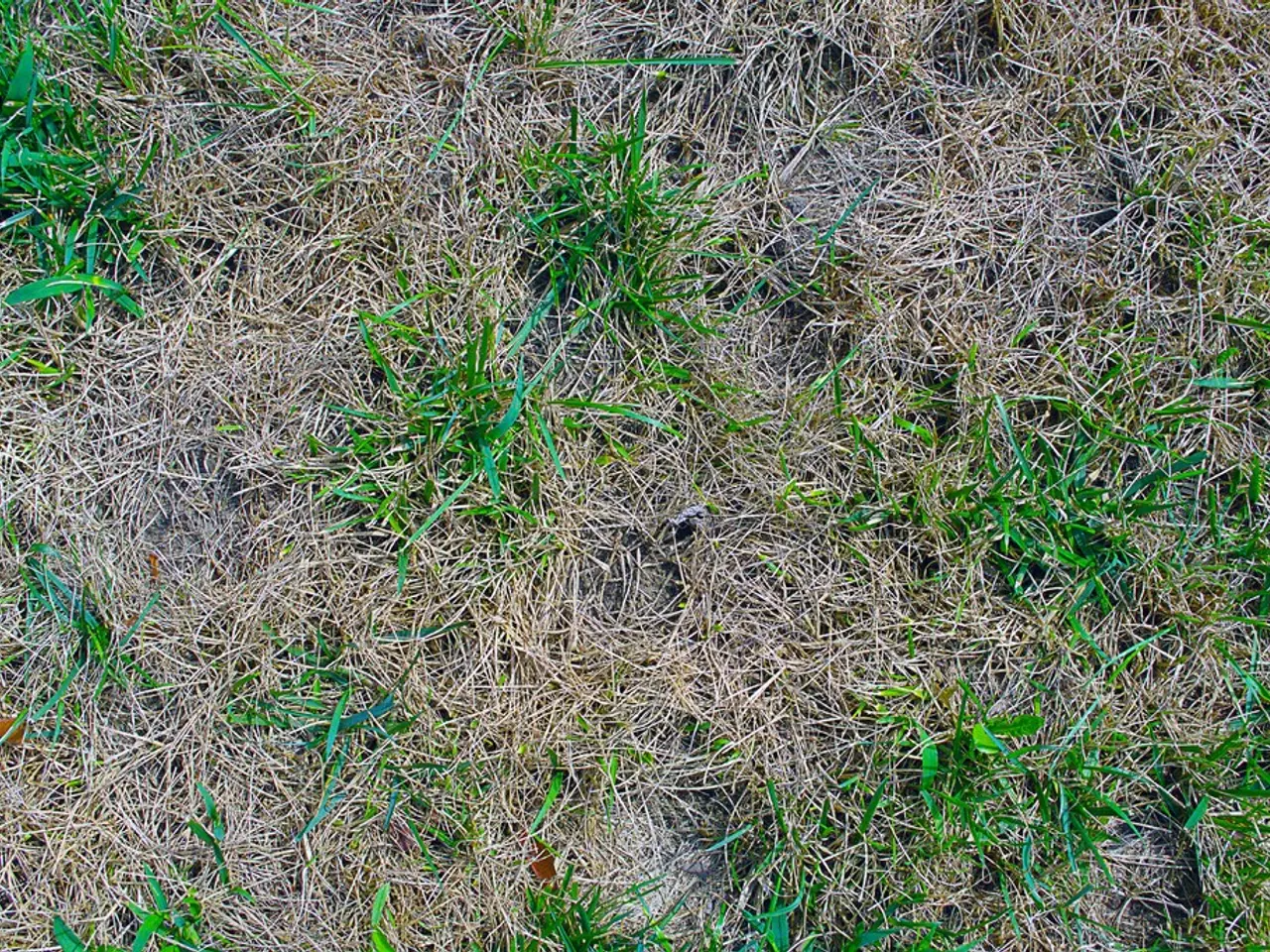"A trip to a Pasture for Life farm is undertaken by 'Eating Better', presumably for the purpose of learning more about sustainable farming practices."
In a significant move towards promoting sustainable farming practices, Fidelity recently welcomed a group of distinguished guests to its Romshed Farm. The visitors included Alice Carter-Champion, a Defra official, and Mark Jacobs, the Senior Scientific Officer for Livestock Science and Future Farming evidence and analysis at Defra. The alliance of over 50 organizations, Eating Better, was also present, having co-hosted the event with the PFLA and several other organizations.
The visit was part of Alice Carter-Champion's short project on pasture-based livestock and farming systems. The group spent a productive and enjoyable day at the farm, discussing various aspects of the project and observing different grazing management techniques. A walk around the farm revealed fields teeming with life, boasting 15 species per square meter, a significant increase from the previous less than eight species.
The stoppage of synthetic fertilizer use at Romshed Farm has played a crucial role in this flourishing biodiversity. The visit from Defra officials was followed by another visit from Eating Better and other organizations the following week. During this visit, Eating Better launched their report titled Principles for Eating Meat and Dairy More Sustainably.
This report focuses on sourcing better quality animal products with higher environmental and animal welfare standards, reducing overconsumption, and shifting more towards plant-based foods. Key principles include:
- Purchasing meat and dairy raised to high animal welfare and environmental standards, preferably certified by third-party schemes.
- Avoiding meat from animals raised on soy-based feed due to its links to deforestation and complex supply chains.
- Making meat or dairy optional or a paid add-on in meals to encourage less routine consumption.
- Buying more plant-based foods and fewer animal-based ingredients, starting with frequently used produce certified for environmental standards.
- Encouraging better transparency and stronger supplier relationships to support sustainable sourcing across the supply chain.
These principles emphasize quality over quantity in animal product consumption, focus on welfare and environmental certifications, and advocate for a dietary transition to reduce the ecological footprint of meat and dairy.
The PFLA has worked closely with Eating Better to encourage them to understand sustainable eating, and the collaboration at Romshed Farm has resulted in a good exchange of views among the participating organizations. The Defra officials were particularly interested in the outcomes of good grazing management and a holistic approach to farm decision-making.
The project at Romshed Farm will investigate environmental impacts, GHG emissions, livestock welfare, and nutritional content of the meat. Fidelity spent time with Alice Carter-Champion and Mark Jacobs, discussing the project and sharing insights into sustainable farming practices.
As the world continues to grapple with the environmental impacts of food production, collaborations like this one at Romshed Farm are a step in the right direction towards promoting sustainable farming and eating practices.
[1] Eating Better. (2022). Principles for Eating Meat and Dairy More Sustainably. [online] Available at: https://eatingbetter.org/principles/
[2] Springmann, M., Clark, M., Mason-D'Croz, D., Willett, W., Horton, M., Horrigan, J., et al. (2016). Analysis and valuation of health and climate change costs and benefits of dietary change. Proceedings of the National Academy of Sciences, 113(33), 9346-9351.
[4] Poore, J., & Nemecek, T. (2018). Reducing food's environmental impacts through producers and consumers. Science, 360(6392), 987-992.
[5] Scarborough, P., Gerber, P., Steinfeld, H., Henderson, B., Wirsenius, S., Ramankutty, N., et al. (2015). Wasted: How food loss and waste affects people, economies, and the environment. Food and Agriculture Organization of the United Nations.







